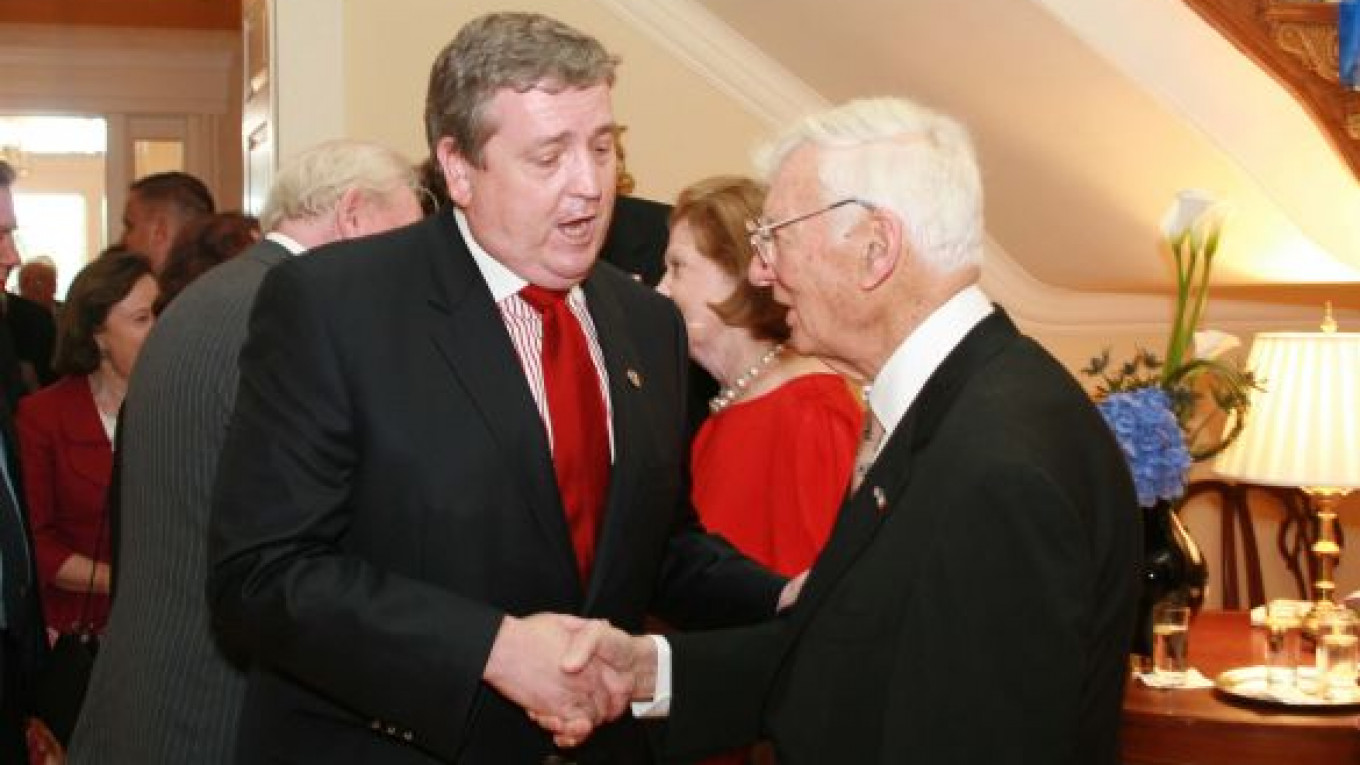Ireland has dropped plans to impose U.S.-style Magnitsky sanctions on Russia after Moscow warned that it might respond by banning Irish parents from adopting Russian children.
The Russian opposition assailed Ireland for the reversal, saying it had not only bowed to Kremlin blackmail but had also shown a lack of leadership as the current president of the European Union.
Irish lawmakers had drafted legislation to blacklist Russian officials implicated of human rights violations in the Magnitsky case. But Russia's ambassador to Ireland, Maxim Peshkov, wrote to the Irish parliament's foreign affairs committee in March that any attempt to introduce a Magnitsky list might have a "negative influence" on an agreement on child adoptions between the two countries.
Several Irish parents subsequently contacted committee members after the letter was made public, expressing concern that pending adoptions for Russian children might be canceled.
Pat Breen, chairman of the foreign affairs committee, said Thursday that lawmakers had decided to scrap the Magnitsky list and instead pass a motion calling on the government to convey the committee's concern over the death.
"We have reached a motion that fulfils our obligations on human rights," he said, according to The Irish Times.
One senator, David Norris, told the committee that the Russian government should be "thoroughly ashamed" for "this use of children," while Jim Walsh, the senator who proposed the blacklist, expressed disappointment that no sanctions would be enacted, the newspaper said. "But," Walsh added, "politics is about achieving compromise."
In Moscow, Vladimir Kara-Murza, a senior opposition member, minced no words in his criticism of Ireland and the Russian government.
"The effect is unambiguous: Ireland, the current president of the European Union, succumbed to the Kremlin's blackmail and threats," Kara-Murza said in an interview with the French radio station RFI. "It is with deep regret that it must be said that the blackmail of Putin's regime has worked."
But he saw a silver lining. "If there is anyone in the West, in the EU, who still had any illusions, the nature of Putin's regime has now been revealed in all its glory," he said.
The motion approved by the Irish parliamentary committee urges the Irish government to use its role as EU president to express concern over the death of Magnitsky in a Moscow prison in 2009. The motion also mentions that the Kremlin's human rights council concluded last summer that Magnitsky had "died as a result of beatings by prison guards" and that no one had been punished in connection with the death.
Magnitsky was arrested by Interior Ministry officials whom he had accused of defrauding the Russian government of millions of dollars. Those same officials later accused him of stealing the funds together with his employer, the London-based Hermitage Capital, once Russia's largest foreign investment fund.
Russia banned U.S. parents from adopting Russian children immediately after the Magnitsky list was signed into law, although it has denied any link between the ban and the law.
"The official Kremlin line was that this was all just a coincidence, although everyone understood that it wasn't but was ashamed to talk about it," Kara-Murza said Thursday. "The letter that Russian Ambassador Peshkov sent to the Irish parliament … openly said that there is a direct link. The Kremlin is determined to use orphaned children as human shields to protect crooks and thieves."
A Message from The Moscow Times:
Dear readers,
We are facing unprecedented challenges. Russia's Prosecutor General's Office has designated The Moscow Times as an "undesirable" organization, criminalizing our work and putting our staff at risk of prosecution. This follows our earlier unjust labeling as a "foreign agent."
These actions are direct attempts to silence independent journalism in Russia. The authorities claim our work "discredits the decisions of the Russian leadership." We see things differently: we strive to provide accurate, unbiased reporting on Russia.
We, the journalists of The Moscow Times, refuse to be silenced. But to continue our work, we need your help.
Your support, no matter how small, makes a world of difference. If you can, please support us monthly starting from just $2. It's quick to set up, and every contribution makes a significant impact.
By supporting The Moscow Times, you're defending open, independent journalism in the face of repression. Thank you for standing with us.
Remind me later.






